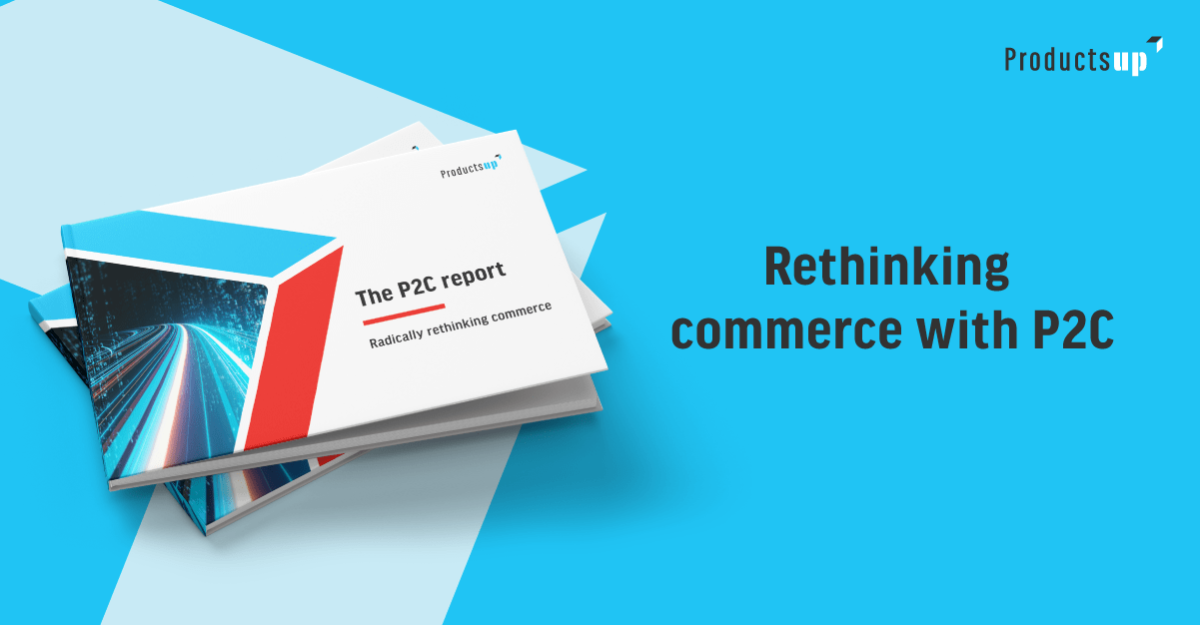The Product-to-Consumer Research Report Confirms Organizations Need a P2C Strategy

New research conducted by Coleman Parkes Research on behalf of Productsup reveals organizations are held back by current tech stacks and confirms decision-makers are eager to change their strategy to tame commerce chaos and grow their business
Productsup, the company empowering commerce, today released a study, “The P2C report: radically rethinking commerce”. The study surveyed 750 senior decision-makers globally about the challenges they’re facing with their current tech stacks and the opportunities they see with adopting a product-to-consumer (P2C) strategy. Nearly all organizational leaders (99%) indicated they’re interested in a P2C strategy for their business going forward, with the belief that P2C will enable them to make clearer strategic decisions based on data-driven insights (51%), speed up time-to-market (48%), and drive innovation to stay ahead of competition (48%).
“Consumer expectations are always changing, and as a result, brands, retailers, manufacturers, and service providers are forced to change with them,” said Vincent Peters, CEO at Productsup. “Companies have been keeping up with the evolving commerce landscape by tacking on one new technology after the next, but they’re now left with a band-aided tech stack that is causing more problems than it’s solving. We set out to determine the demand for a P2C strategy and found organizations are desperate for a solution that helps them overcome commerce anarchy by simplifying product information value chain management.”
P2C management, a new category identified in Constellation Research’s Market Overview, streamlines the path a product takes to reach consumers. Productsup’s study shows 51% of organizations use a product information management (PIM) system and 48% use a digital asset management (DAM) system; however, more than one-third (37%) of decision-makers are concerned with the consistency of product information being passed through their tech stack. With a P2C management approach, companies can replace siloed systems with a single platform that holistically manages the flow of all product data between any supplier and any buyer to ensure a consistent, accurate, and detailed presence across more than 2,500 marketing, ecommerce, and retail channels.
The data reveals that the risks are high when using the wrong approach to product information value chain management. Current tech stacks are costing organizations an average of 3% in profits and 6% in revenues every year. Without a strong omnichannel presence, companies limit their share of a $4.2 trillion ecommerce market. In fact, only 2% of organizational leaders feel confident about competing with hyperscalers over the next three years.
Other key findings from Productsup’s report include:
- Companies are losing out on social commerce. Less than one-quarter of companies sell their products on the world's largest social commerce platforms. Specifically, only 20% use Facebook as a sales channel, while just 14% use Instagram.
- Brand reputation is at stake. Eighty-three percent (83%) of decision-makers are concerned their company is experiencing reputational damage to its brand(s) due to a poor approach to product information value chain management.
“When it comes to digital change, businesses have been pushing the full throttle, but in order to truly progress, they need to rethink how they reach consumers,” Peters said. “To survive in today’s commerce landscape and thrive in tomorrow’s, companies need to forget the traditional B2B and B2C strategies they’ve been leaning on for the past decade. In the end, every commerce business has the same goal - bringing their products or services to their customers. P2C simplifies the commerce ecosystem by providing a one-size solution to all.”









![[BlogPost][WP Import] Loreal_text_ads_case_study](http://images.ctfassets.net/q17uls4wkkdz/5qp8yqDyfT9jzTMAvGe7g3/6ebe6cc3c6164794321d0ce7f5888efd/loreal-anz-grey.png?w=128&h=64)